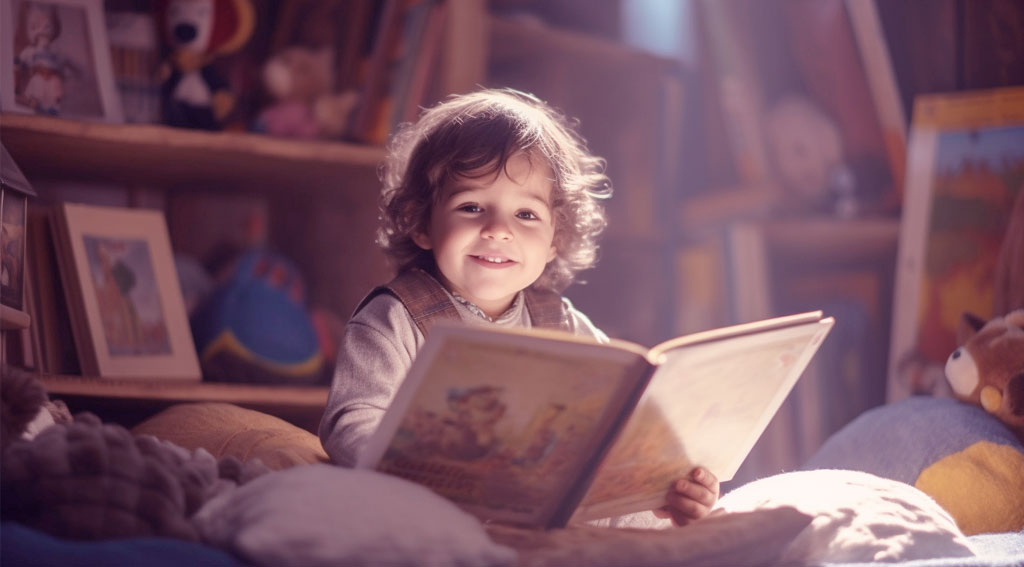
Great Playmate Books: How Books Can Liberate Your Child
While play helps children develop physically, emotionally, mentally, and socially, it also gives them ideas and encourages them to express those ideas in creative ways. After all, children learn about the world through play. Through play, they discover how to interact with others and learn how to express their thoughts and feelings, and resolve conflicts. As they grow, they continue experimenting and testing different life scenarios and consequences in the safety of their playtime.
Play is the work of childhood.
Jean Piaget
According to the developmental psychologist Erik Erikson, as children go through their developmental stages, play serves as a mirror of their psychosocial life. It is through play that children recreate real life situations, learning how to deal with them. What Erikson recognizes as our ways of gaining experience in life through analyzing and adapting, the German philosopher Friedrich Schiller sees as our experience of freedom that relates “to the totality of our various functions.” Schiller speaks of the aesthetic as a realm of experience that mediates between the intellectual and the moral, resolving the tension between them through aesthetic education. Through the immediacy and the power of play, by reading and creating art, children learn to use their imagination and all their senses by collaborating with each other and negotiating their common grounds.
Books as Children’s Playmates
Books carry a similar power to the freedom of play. This is why it would not be hyperbolical to argue that books can be your child’s playmates. Books can offer profound insights into unlocking one’s potential. They can strengthen your child’s ability to see the connection between the cause and effect in a given situation, helping you child connect the dots. Books can promote introspection in children, letting them explore the effects of a certain behavior in the safety of a story. It is no surprise, therefore, that kids feel particular affinity to books that approach a story from children’s point of view, with the fresh memory of childhood. This is what makes a children’s book great literature.
In his Playing and Reality, the psychoanalyst D. W. Winnicott aptly defines play as something “that promotes the child’s growth, allowing the child to be part of a group and to interact with others as well as with oneself”. By interacting, Winnicott means integrating through honing skills and acquiring experiences as a developing child who learns to recognize and comprehend the word around. Such integration can also be fostered by great children’s literature. Let me explain.
The Importance of Great Children’s Books
It is interesting how literature grants us the opportunity to share other experiences indirectly. By observing another life, we can better understand our own lives, take on other perspectives and make alternative deductions. We can learn from imaginative works of fiction. We can enter the life of someone we have never met, may never meet, but can, nonetheless, imagine and wonder about. We establish a bond with the coherence of a text. Books that take their young readers seriously, ensure the interaction between the child, the book and art, and are written with consideration of the child’s needs, can build a genuine connection with their target audience.
Books that refrain from thinking for the child but instead encourage them to think for themselves and collaborate with the reader in the construction of meaning, will make room for analysis and interpretation. These are books that give children enough space to connect with the story by following the breadcrumbs, the clues that the text has to offer. By engaging in the causality of a story and finding answers, your child will experience the immense pleasure of meaning making. Your child will learn how to process a text and construct its meaning, which will solidify a trust in literature.
Great Playmate Books
Books that provide children with space and freedom encourage liberating life skills. A great playmate book enables your child to see that, in any given situation, there is more than one “right” answer; thus the child can explore the story with confidence.
Only when the subject, events, and plot of a story are liberated from the one thing the author is trying to tell us, can opinion, perception, and comprehension be refined; making books instrumental in the liberation and growth of children. This is what the magic of a great playmate book is about.
A Fun Activity with Your Kid
This is an activity through which you can encourage your child to become a narrator or a writer. Think of this activity as a way for your child to observe, imagine, and tell a story and share it with you.
If your child is old enough to read and write: Ask your child to write a letter imagining herself looking through the eyes of an object in her room. What would she feel, want, or desire if she were that object? What may this object have seen so far? Has it ever been happy or sad? How would your child describe being such an object that spends time waiting? What could have happened to this object while it waits? Does your child have any suggestions for this object?
If your child is too young to read or write: Ask your child to imagine playing with an object. Then ask her to imagine the object in another place. Encourage your child to act out a situation where she thinks like that object. Ask what the object may have encountered in such a situation. Ask your child what the object may be feeling.

Selda Uzunkaya
Author and Creative Drama Teacher
Selda Uzunkaya holds a B.A. in Theatre Arts from the Ankara University and a M.A. in Performing Arts at the Dokuz Eylül University. She has been working with children for thirteen years, and holds workshops for adults on creative writing and children’s literature. The author is editor at various publishing houses, works as dramaturg at Theatre Terminal, and directs children’s plays. The celebrated author’s books available to read on Kidly are “Bittersweet Summer Fruits,” “Making Friends”, “Dreams Without Baggage”, “Sky Museum,” and “Bundle of Love”.
